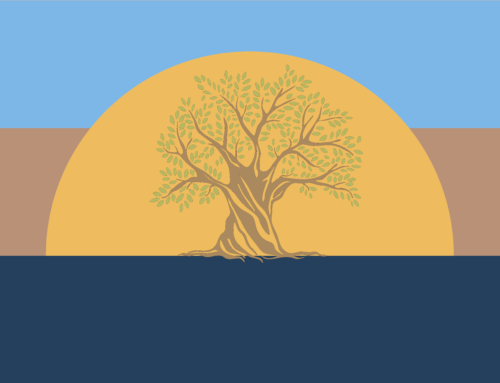(By Simone Perotti)
Two weeks in a town that has divided the crew and the feelings of the crew. Not very useful to list them all. Let’s say: some neutrals, some favorable, and one against. Supporters have come to us by our hosts, who has described the town as “hopeless city (people)”, “coat of coexistence, then scratching and no one loves the other”. “They coexist, they do not cohabit “. “Beirut is not a sea city”. “No longer associated with Arab identity or even with a new identity”. Who knows …
In Beirut we’ve been shooting long and wide, but being so big it’s impossible to trace an exhaustive profile. Some beautiful art gallery, voices of a world that someone seemed to be moving in spite of the lack of hope (an Arabic world expert has traced a very penalizing comparison with Tunisian society, for example, in the hope of future projection). Certainly, here the internal and external war has squeezed hard on the key of destruction, and this is a strong attenuation. Crushed walls of melee shots everywhere. A crazy urban setting, traffic and a strong pollution. And the sea, absent, capable of therapy too soft against the wounds of time.
Building speculation has created ghostly, glittering neighborhoods of empty skyscrapers erected solely to collect available funding, such as Zaytuna Bay, where we are moored. Some of these architectural works are liked, some would even like to live here. To me that I put these lines in trying to put everything inside, it seemed a representation of hell on earth, far from nature, without a square that could be an agora, without the old men on the bench beneath the trees or small fishing boats between the sea and the pier like bees on flowers. But this is also the Mediterranean. When there are too many divisions the square is just a risk, everyone is doing their own in the neighborhood.
Contradictions, dissonant views between observers, superstructures of models and possible answers.
Of course, the social scheme of money, work, success, appearance (never seen, at one time, so many luxury cars and reworked women) appear to be widespread, transversal to cultures and groups of belonging, and pushes towards a very little mediterranean direction, to measure, livable except in the fake and nervous euphoria that habitually makes it to the desolation. In an area already so difficult, marked by new altitude and infinite clashes, always on the brink of something that never resembles a true tomorrow, you risk getting the enemy always at the door, or being an enemy at the door of the close. Too many religious confessions, moreover. Too many thousands of condos to regulate consensus, too little secularism of the institutions. But maybe we see today a “not yet” that tends to become “something”. We wish you, as one of our most alert respondents wishes. On the shores of Zaytuna Bay once there were the olive trees, which were uprooted to make way for the palm-trees in the southern arabic, which pumps a lot of money here and demands space, even aesthetic. As there was a suq, it looks very ancient and very beautiful, satin on the ground to leave place at a mall with the brands of Hugo Boss and Bottega Veneta. The Armenian quarter, perhaps one of the few parts of the city where one feels a community, is crumbling, made original only by being completely out of the restaurant because the Armenians eat at home.
Outside Beirut, something changes. A long and slender, green and fertile country, the great mountainous back on the blue of the sky, the vegetables, the climate, and some small centers on the sea. Tripoli, that some of us has seen and called it beautiful, very Islamic, messy, true. Tourist Byblos, with a buried Mediterranean marina, a beautiful library, a crusader castle, some authentic springs to look carefully. Sidon, with its suq.
I said in the beginning of these travel notes that it is a partial view. To some, this has seemed like a pleasant city full of life, with beautiful contemporary architectural examples, galleries, young people’s ferocity, helpful, kind and friendly people. And on this we can close by converging: the Lebanese are always ready to help or point you a way, to listen to you and to smile, they speak almost always a language more beyond their own. It should also be said that in three years of travel to the Mediterranean, we could say similar things to the Greeks, Turks, Georgians, Bulgarians, Rumanians, the islanders and the continents. The idea we have in mind for this common home is here. We may think it differently, feel more or more partially in one place at home, be in the judgment of everything except about the people. They are the true soul of the Mediterranean, the only unimaginable hope of a compromised world.
Did we find the Mediterranean here? Also. Have you been disappointed, kidnapped, fascinated, dissuaded, confused? It depends. From the eye of the one who looks, of course, but also from the idea of life we have in mind. And we see that the different assumptions do not collide, that each of us is willing to do so, or at least, or to something different, thinking about the model of existence and sharing. So useful, but there was nothing to doubt about it. One evening, in a barn in the Armenian quarter I talked about dreams, expectations, hopes, changes with a travel companion. It was beautiful, useful, very suitable, in tones, ways, feelings, what I have in mind when I think of the Mediterranean scheme and its values. The places where Mediterranea goes are to know, to discover, to deepen. Like his crew. Each of us, he knows.






Leave A Comment